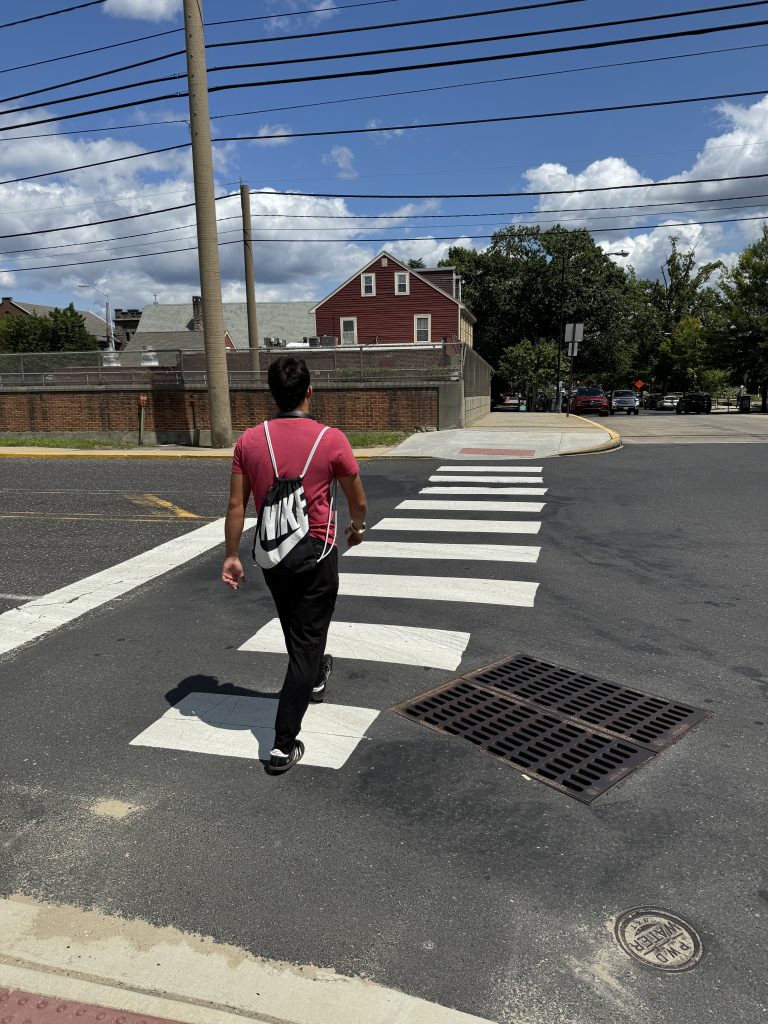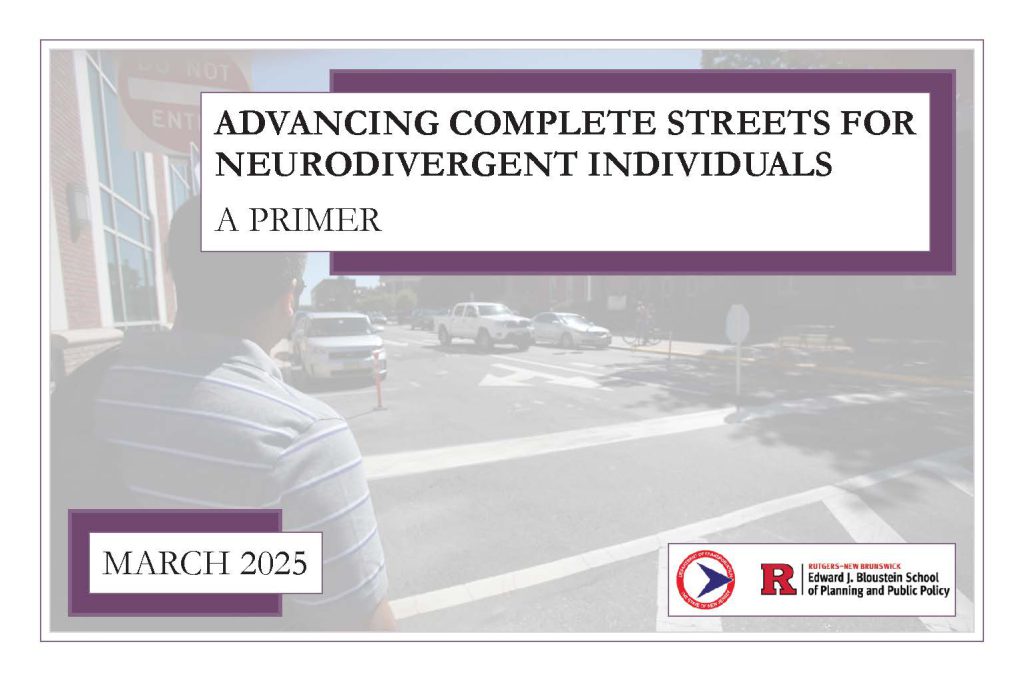The NJDOT Bicycle and Pedestrian Resource Center (BPRC) recently released a new primer, “Advancing Complete Streets for Neurodivergent Individuals.” Synthesizing information from a comprehensive literature review and interviews with subject matter experts, the primer provides an overview of the transportation challenges experienced by those with autism spectrum disorder (ASD) and intellectual and developmental disabilities (IDDs) and explores potential partnerships and infrastructure improvements to make transportation safer and more inclusive for neurodivergent people.
In response to legislation passed in 2023 seeking to improve transportation safety for neurodivergent individuals, NJDOT funded the development of this primer to add to existing knowledge on the topic of transportation patterns and barriers experienced by people with ASD and IDDs. This information provided in the primer contributes to NJDOT’s ongoing efforts to address the needs of people with ASD and/or IDDs in the Department’s projects, policies, and procedures.

Many members of the neurodivergent community cannot drive and/or reside in neighborhoods where walking and transit are impractical travel mode choices. This impacts their ability to reach necessary goods and services like healthcare, food, education, and recreational activities. (Photo: New Jersey Travel Independence Program @ Rutgers)
Since only about 3% of New Jerseyans with ASD drive, it is critical to support transportation for neurodivergent individuals through improvements to the active transportation environment. Failure to consider the needs of neurodivergent individuals in transportation planning will limit their mobility, impacting access to necessary goods and services like healthcare, food, education, and recreational activities.
While recognizing the diversity of conditions that fall under the umbrella of “neurodivergence,” the primer identifies a selection of symptoms common across many diagnoses, explaining how these symptoms pose specific transportation challenges for those with ASD and IDDs as well as suggestions that might help to overcome those barriers.
The primer outlines considerations in three key areas:
- Future studies that might consider the transportation and mobility needs for neurodivergent individuals.
- Infrastructure improvements that could address the challenges faced by neurodivergent individuals in the built environment, particularly when it comes to walking and biking.
- Expanded partnerships that might achieve greater representation of the neurodivergent community in workshops, conferences, and committee meetings.
The information provided in the primer can help identify potential areas of study and strategies that might be applied to improve walking, bicycling, and access to transit for neurodivergent individuals in New Jersey.

